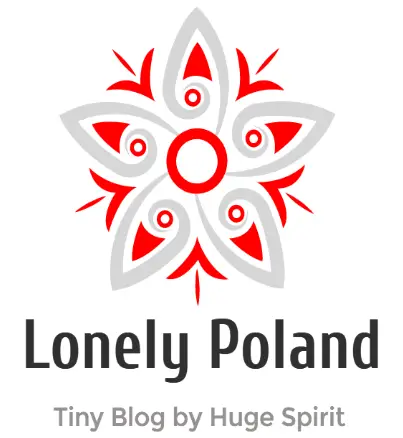Have you ever wondered, „How easy is it for a foreigner to set up a bank account in Poland?” With the growing number of foreigners making Poland their home, many people are seeking to open personal accounts. Let me tell you that it’s not always as easy as one might think. I am here to take a closer look at the challenges and the potential solutions you might encounter along the way.

The Challenges in Opening an Account as a Foreigner in Poland
Setting up a bank account these days can be a breeze. From visiting a bank branch, to clicking a few buttons online, to dialing a hotline, or even using a mobile app – there are so many options. Unfortunately, I can tell you that these easy methods don’t always apply if you’re a foreigner.
Trying to complete an online form often leads to a frustrating dead-end as the system just rejects the application. Sure, some banks might let you fill out the application electronically, but you still need to pay a visit to the branch to sign the contract.
It’s worth mentioning that none of the Polish banks will send cards abroad, whether by mail or courier. For non-residents, this can be a big hurdle. To get your hands on the „plastic”, you need to provide a Polish mailing address in the application and then travel to Poland to collect your card.
The Hidden Information
I truly believe that for anyone looking to navigate the banking landscape in a foreign country, knowledge is power. But what if the necessary information is buried or, worse still, unavailable? This is what many of my foreign friends have to deal with in Poland.
↳ PRO TIP: Do you like traveling? Then before you buy any ticket or book an attraction, check if it's available in this worldwide Viator Database. You may save a lot of money and time. No need to thank me :)
The procedures for opening personal accounts for foreigners are spelled out in each financial institution’s internal regulations. But very often, these crucial guidelines are buried deep within the bank’s website, if they’re available at all.
You might think, „I’ll just ask a bank employee for help”. Well, I’m convinced it’s not always that simple. Some bank employees themselves don’t even know the specific procedures that apply to foreigners. As a result, foreigners looking for this information might have to resort to calling hotlines or trawling through the English or Russian versions of the website. And often, these attempts end in frustration, as the content is usually just a generic overview of personal accounts.
Key documents like regulations, contracts, and fee schedules are often not even translated into foreign languages.
The Language Barrier in The Bank
Language can often act as a bridge or a barrier, depending on how well you know it. Imagine having to frequently interact with bank employees but struggling to communicate effectively due to language differences.
That’s a reality many foreigners in Polish banks have to grapple with. Whether it’s getting information on opening a personal account or signing a contract, everything requires communicating with bank personnel. This can be a tough ask if you’re not fluent in Polish and the customer advisor doesn’t know any foreign language.
Now, you might think, „Why don’t the banks just make it easier for foreigners?” Well, the truth is, banks in Poland are not obliged to do so. According to regulations, Polish is the binding language for all interactions between the bank and the account holder. However, some banks are realizing the value of meeting their foreign customers halfway.
A study by Idea Expert showed that a number of banks have introduced foreign language services at their branches to improve customer experience. But I know, this convenience is limited mostly to big cities. So, if you’re in a smaller town, you might need to bring along an interpreter when you visit the bank.
Different Rules Apply for Residents and Non-Residents
I think it’s important to note that while almost all Polish banks advertise the option of opening an account for foreigners, the rules vary depending on whether you’re a resident or a non-resident. A resident is someone living in Poland, whereas a non-resident has a residence abroad. If you’re a non-resident, you might face rejection from some banks when trying to open an account. Plus, you’ll need to provide more documents, and each bank has its own specific requirements, which can be hard to pin down.
As a general rule, non-residents need to show documents confirming legal stay in Poland and proof of identity. Depending on the bank, this could be an:
- ID card
- a driving license
- a declaration of residence
- or a residence visa
- some banks might also accept a certificate of student status from a Polish university or a certificate of taking a language course at a university or college.
Non-residents without a residence card often have to provide one more document: a Tax Residence Certificate. This certificate, issued by a competent tax office, proves your place of residence for tax purposes and helps you avoid double taxation if you’re conducting business both in Poland and abroad. It’s worth noting that having the necessary documents can significantly smooth out your banking experience in Poland. So, be prepared.
More Banks are Embracing Foreign Customers
It’s great to see that some banks are starting to recognize the potential of foreign customers and are going the extra mile to cater to their needs. Take Credit Agricole for instance. They’ve prepared a form for foreigners that provides a detailed list of all the documents you need to set up a current account. It’s available in four languages and is divided according to customers from the European Economic Area (EEA) and those from outside the EEA. I must commend them for this initiative, even though the list of documents can be a bit overwhelming.
There’s also Bank Millennium, which has introduced an interesting feature for foreigners who are residents. Here, you can finalize a contract via courier, saving you the hassle of visiting the bank in person. Now that’s convenience!
Tips on Opening an Account as a Foreigner in Poland
If you want to avoid repeated trips to the bank and shorten the application processing time, it’s worth coming prepared with all necessary documents.
Here's a little tip: Before you go to the bank, call their hotline and explain your situation in detail.
Mention the document that entitles you to stay in Poland (like a visa, permanent or temporary residence card, or Pole’s Card) and describe your status (resident, non-resident, EU citizen, non-EU citizen, or Ukrainian refugee). Then, ask for specifics on the following points:
- What documents do you need to open an account?
- Will the bank require your PESEL number?
- Is there a bank branch in your area that offers services in English (or Ukrainian, Russian, French, or German)?
- Does the bank provide a transaction system in a foreign language?
- As a foreigner, will you have accss to all the additional services associated with the account (like savings products, loans, overdrafts, etc.)?
Now, let’s take a look at a handy table that shows the documents required to open an account in selected banks during the standard procedure ( this does not apply to accounts opened for refugees from Ukraine ). Keep in mind that this information, based on responses sent by the banks, is subject to change.
Necessary Documents for Opening an Account (Standard Procedure)

Check out the table below to get a quick overview of where and how to open an account for a foreigner at different banks in Poland. It includes the bank’s name, how to set up an account, and the data or documents you’ll need.
| Bank Name | How to Set Up an Account | Required Data/Documents |
|---|---|---|
| Alior Bank | An account can only be opened at a bank branch. | Both residents and non-residents can set up an account. Required documents are: valid foreign passport + visa OR residence card (permanent or temporary). |
| Bank Millenium | Online or at a branch. For residents, it is possible to conclude a contract via courier (only in Poland). | Both residents and non-residents can set up an account. For EU citizens, a passport is enough. For non-EU customers – a passport + a document confirming the need to set up an account in Poland, e.g. a residence card, an employment contract for over 6 months, or a university admission certificate. |
| Bank Pekao | Only in the branch. | For EU and Ukrainian citizens, a passport is enough. Customers from outside the EU must present a passport + an additional document confirming the address of residence in Poland (e.g., residence card, apartment rental agreement). |
| BNP Paribas | Service in Ukrainian in selected branches located in Warsaw, Poznań, and Wrocław. | A valid identity document, such as a passport or identity card of the country of origin and a residence card (permanent or temporary) or a work permit. |
| BOŚ Bank | Only in the branch. | Resident: A document confirming identity, i.e. an identity card or a foreign passport with a permanent residence card. Non-resident: passport and possibly an additional document (e.g. containing the client’s address of residence) or an identity card issued on the territory of a European Union Member State. |
| Credit Agricole | Personal visit to the branch. | EEA and Swiss customers need a valid identity document and a document confirming the right to stay in Poland. This could be a variety of documents such as a registration certificate, a work contract, or a student ID card. A PESEL number is also required. For customers from outside the EEA: A passport or residence card, tolerated stay permit, or school ID is needed (in the case of a minor customer). |
| ING Bank Śląski | Only at a bank branch. | For EU citizens, an ID card OR passport is sufficient to set up an account. When signing the contract, the foreigner is asked to submit FATCA and CRS statements, statements about the source of funds, and tax residency. For non-EU customers, additional documents are required such as a residence card or visa, documents confirming residence, and a document confirming income. The documents should not have an expiry date shorter than 3 months from the date of submitting the account application. |
| mBank | At a bank branch. | A foreign passport with a permanent residence card is required. The bank also accepts a temporary residence card, but additional documents are needed: a foreign passport and a long-term resident’s European Union residence permit issued by the Office for Foreigners. |
| Nest Bank | The application can be submitted online, but the contract can only be signed at a branch. | The bank maintains accounts for both residents and non-residents. To open an account, a passport and a residence card OR the Pole’s Card is required. |
| PKO BP | Only at a bank branch. | Both residents and non-residents can set up an account. A passport or other document is needed to confirm the client’s identity (e.g., a residence card). |
| Santander Bank Poland | Only at a bank branch. | Citizens of EU countries must present an identity card of an EU country OR a foreign passport (provided they have a document confirming the assignment of a PESEL number), a residence card with a PESEL number OR a certificate of registration of an EU citizen’s stay in Poland. One additional document is required, such as confirmation of assigning a PESEL number or a driving license. Non-residents must present an identity document and a document confirming their stay in Poland. |
Please be aware that banks may change their policies without notice, so it is always best to contact the bank directly before starting the account-opening process.
The Process for Ukrainian Refugees in Poland
In light of recent geopolitical events, most notably Russia’s agression towards Ukraine and the consequential wave of refugees to Poland, several Polish banks have adjusted their policies to ease the process of opening accounts for these new arrivals from the east. Each institution has, however, taken its own unique approach, which can lead to confusion and difficulty navigating the system for refugees unfamiliar with the Polish language and customs.
Opening an Account in Poland Without a Residence and Registration Card
A selection of banks now allow Ukrainian customers to open an account without needing to provide documentation of their residential address or income earned in Poland. These banks include Alior Bank, PKO BP, Santander Bank Polska, ING Bank Śląski, and BNP Paribas. Additionally, Bank Pekao and Citi Handlowy have stated that to set up a personal account, all that is needed is a valid passport. Further details on the banking services available to refugees are covered in the article, „The best bank accounts for Ukrainians: recommended accounts and required documents”.
Setting up a Business Account as a Foreigner
The process of opening a business account as a foreigner largely depends on whether the company is registered in Poland or abroad. The legal structure of the company is also a consideration. Depending on these factors, different documents may be required.
For those who have registered a company in Poland, the process is somewhat simpler. Similar to individual clients, they will be asked for documents verifying their identity and legal residence status. However, foreigners running businesses outside Poland will need to provide proof of their company’s existence, in the form of a document equivalent to the Polish CEiDG or the National Court Register.
This document must be translated into Polish by a sworn translator and provided with an apostille clause. Translations can be done abroad, but must be authenticated by the appropriate Polish diplomatic or consular representation.
Opening a Bank Account – Patience is Key
For many foreigners residing in Poland, having a local bank account isn’t just about convenience—it’s a necessity. With employers and scholarship granters typically favoring bank transfers over cash payments, these individuals often face obstacles when attempting to open an account. Banks are often particularly wary of non-European Union citizens without resident status.
The lack of a uniform procedure for opening an account is a common complaint among foreigners in Poland. Each bank has its own set of criteria, which are often hard to decipher. However, the increasing number of foreigners in the country may prompt banks to standardize their rules and enhance their services for non-Polish speaking clients. As seen with the example of Ukrainian refugees, opening the banking sector to foreigners is entirely feasible.
References:
- https://www.credit-agricole.pl/pytania-i-odpowiedzi/konto/jestem-cudzoziemcem-czy-moge-otworzyc-konto-w-banku-credit-agricole#:~:text=Tak.,48%2071%2035%2049%20009
- https://www.appjobs.work/pl/centrum-pomocy/jak-zalozyc-konto-bankowe-w-polsce-dla-obcokrajowca



